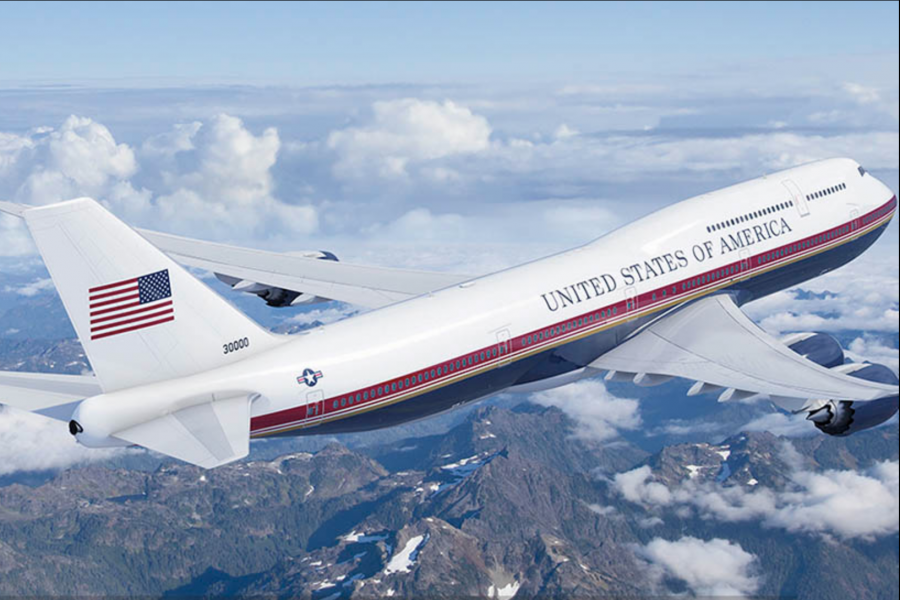The effort to replace Air Force One is moving along smoothly despite the new coronavirus, and has essentially completed a key design milestone, USAF acquisition boss Will Roper said April 16.
Program officials held the critical design review online rather than coming together in person during the pandemic, a practice that Roper touted as an easy and efficient model for the future. He’s a fan of having participants raise their digital hand during a livestream to line up for questions.
“I don’t think we’re going to go back to people [temporary duty traveling] and sitting in large conference rooms,” he said. “I don’t know if it makes any sense to do CDRs, at least at an unclass[ified] level, outside of tools like this.”
Employees still need to head into a secure area like their Pentagon office to handle classified information—including a significant portion of the Air Force One replacement initiative—so USAF is trying to shrink and stagger the number of people who need to leave home for that work.
But the pandemic has opened up new opportunities for the VC-25B as well.
As commercial air travel grinds to a halt due to stay-at-home orders across the country, Roper indicated VC-25B manufacturer Boeing is repurposing that workforce to handle commercial-derivative programs like the new Air Force One, which is based on the 747-8. He doesn’t expect the pandemic will delay the development and production of the two jets.
“Work continues down in Texas … and we’ve been able to benefit from COVID-19 on the defense side because a lot of the engineers and tools and talent that would be dedicated to other commercial functions within Boeing have now been available to help that program,” Roper said.
The new aircraft are slated to cost more than $5 billion overall, including $4.7 billion for development, and be ready for operations in 2024. Boeing began modifying the first plane in February to hold specialized communications, self-defense, and other systems that uniquely suit the needs of the President and other top government figures.
On April 15, the Pentagon announced an $84 million contract award to Boeing to come up with user manuals for the VC-25B. Those manuals will span more than 100,000 pages detailing how to fly and fix the jets, according to Defense One.
The Air Force is requesting $800.9 million for VC-25B development for the program’s financial peak in fiscal 2021. Officials plan to start developmental testing later this year, according to the service’s 2021 budget documents.
